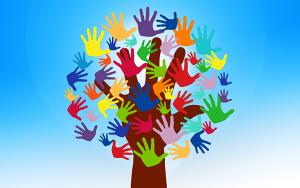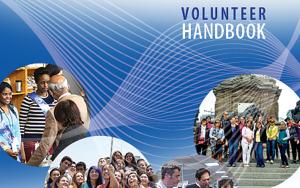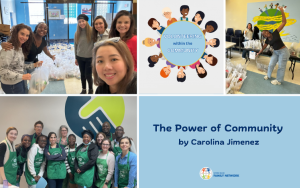Domestic Abuse Tips - What is Domestic Abuse
Domestic abuse is an unpleasant topic, but it is a reality. It occurs in every culture and in every level of society, regardless of race, religion or education. Statistics show that Women are 90-95 percent more likely to suffer domestic violence than are men, but men may be victims too. In 2007, crimes by intimate partners accounted for 23 percent of all violent crimes against females and 3 percent of all violent crimes against males. But abuse involves more than physical violence. There can be psychological or sexual abuse as well. Threats, intimidation and economic abuse are all forms of domestic abuse.
Domestic violence constitutes the willful intimidation, assault, battery, sexual assault or other abusive behavior perpetrated by one family member, household member, or intimate partner against another. In most state laws addressing domestic violence, the relationship necessary for a charge of domestic assault or abuse generally includes a spouse, former spouse, persons currently residing together or those that have within the previous year, or persons who share a common child.
Many people are faced with difficult issues or conflicts in their lives, but they do not resort to abuse. Even in situations in which a marriage or domestic relationship is in trouble, people can behave in a respectful manner and settle their differences in a mature and dignified way. Abuse is something completely different. Abuse is about power and control. The abuser wants to control the victim, and uses various means to exercise that control. The following are some of the forms abuse can take.
Threats
The abuser may make and/or carry out threats to hurt the victim, harm the children or the victims’ parents or family, or to commit suicide. They may threaten to leave or to take the children.
In cases specific to the Bank, the abuser may threaten to take the victim’s passport, cancel the G-4 visa.
Isolation
The abuser attempts to control all of the victim’s contacts, including monitoring the phone and e-mail, thus isolating the victim from contact with family and friends. The abuser wants to limit the victim’s activities outside the home, and may accuse the victim of infidelity or use jealousy to justify the abusive actions.
Emotional abuse
The abuser may use humiliation to control the victim. They put the victim down, calling him/her names, questioning their intelligence or even their sanity, making them feel guilty or feel bad about themselves.
Economic abuse
The abuser controls the money and denies the victim any knowledge of the family’s financial situation or access to family funds. An abuser makes the victim beg for money or provides only a miserly allowance. They may prevent the victim from getting or keeping a job.
Using Children
The abuser may use threats against the children to control the victim. The abuser may treat the children generously while restricting the victim’s access to funds, and then attempt to portray the victim as ungenerous and greedy. After a separation, the abuser may use visitation to harass the victim.
Male privilege
The abuser may treat the victim like a servant, make all the big decisions, and conduct himself like “master of the castle”.
Intimidation
The abuser may make the victim afraid of them by using looks, actions or gestures, by destroying their personal property, abusing pets or displaying weapons.
Minimizing, denying and blaming
The abuser may deny responsibility for the abusive behavior, and may try to shift the blame for the abusive behavior to the victim, saying that he/she caused it. The abuser may also deny that the abuse happened, and may accuse the victim of trying to make trouble or to damage the name of the abuser.
Victims frequently wonder if marriage or relationship counseling will stop the abuse. Experts advise that Marriage/Relationship Counseling is not appropriate in domestic violence situations. For this type of counseling to work, both partners must feel safe and be able to make decisions freely. That does not happen when one partner is being threatened, intimidated or abused. Violence is not a couple’s problem; it is the problem of the abuser alone. If the abuser is treated and the violence has stopped, then marriage/relationship counseling might be considered.
Victims sometimes say the violence becomes worse when the abuser drinks or uses drugs. Alcohol or drug use reduces inhibitions, but substance abuse does not cause violence. Treatment for substance abuse will help with that problem, but will not help the batterer control violent behavior. Abusers who blame their behavior on chemicals are trying to avoid taking responsibility for their actions.
Finally, all of those who work with victims of abuse make the same point: THE VIOLENCE IS NOT YOUR FAULT. NO ONE DESERVES TO BE ABUSED, AND NO ONE HAS THE RIGHT TO HURT YOU
The abuser may make and/or carry out threats to hurt the victim, harm the children or the victims’ parents or family, or to commit suicide. They may threaten to leave or to take the children.
In cases specific to the Bank, the abuser may threaten to take the victim’s passport, cancel the G-4 visa.
Isolation
The abuser attempts to control all of the victim’s contacts, including monitoring the phone and e-mail, thus isolating the victim from contact with family and friends. The abuser wants to limit the victim’s activities outside the home, and may accuse the victim of infidelity or use jealousy to justify the abusive actions.
Emotional abuse
The abuser may use humiliation to control the victim. They put the victim down, calling him/her names, questioning their intelligence or even their sanity, making them feel guilty or feel bad about themselves.
Economic abuse
The abuser controls the money and denies the victim any knowledge of the family’s financial situation or access to family funds. An abuser makes the victim beg for money or provides only a miserly allowance. They may prevent the victim from getting or keeping a job.
Using Children
The abuser may use threats against the children to control the victim. The abuser may treat the children generously while restricting the victim’s access to funds, and then attempt to portray the victim as ungenerous and greedy. After a separation, the abuser may use visitation to harass the victim.
Male privilege
The abuser may treat the victim like a servant, make all the big decisions, and conduct himself like “master of the castle”.
Intimidation
The abuser may make the victim afraid of them by using looks, actions or gestures, by destroying their personal property, abusing pets or displaying weapons.
Minimizing, denying and blaming
The abuser may deny responsibility for the abusive behavior, and may try to shift the blame for the abusive behavior to the victim, saying that he/she caused it. The abuser may also deny that the abuse happened, and may accuse the victim of trying to make trouble or to damage the name of the abuser.
Victims frequently wonder if marriage or relationship counseling will stop the abuse. Experts advise that Marriage/Relationship Counseling is not appropriate in domestic violence situations. For this type of counseling to work, both partners must feel safe and be able to make decisions freely. That does not happen when one partner is being threatened, intimidated or abused. Violence is not a couple’s problem; it is the problem of the abuser alone. If the abuser is treated and the violence has stopped, then marriage/relationship counseling might be considered.
Victims sometimes say the violence becomes worse when the abuser drinks or uses drugs. Alcohol or drug use reduces inhibitions, but substance abuse does not cause violence. Treatment for substance abuse will help with that problem, but will not help the batterer control violent behavior. Abusers who blame their behavior on chemicals are trying to avoid taking responsibility for their actions.
Finally, all of those who work with victims of abuse make the same point: THE VIOLENCE IS NOT YOUR FAULT. NO ONE DESERVES TO BE ABUSED, AND NO ONE HAS THE RIGHT TO HURT YOU






